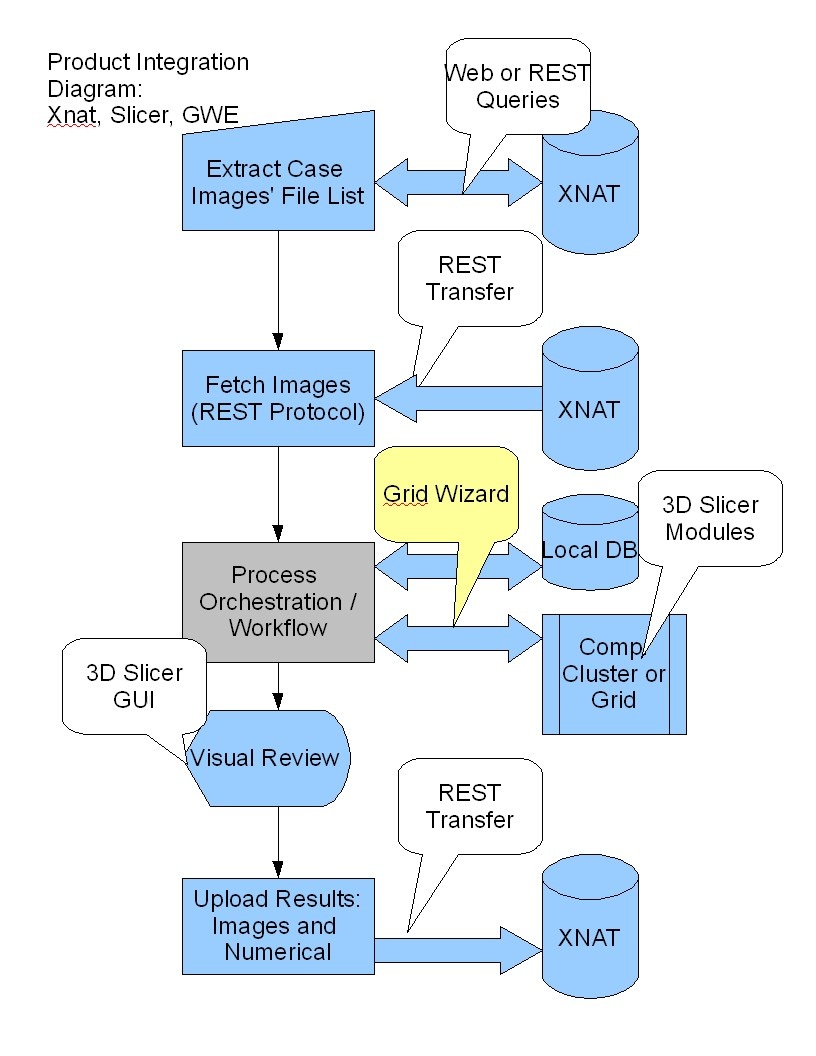Projects:ARRA:SlicerWF:UseCaseScenarios
Back to SPINE ARRA page
Overview
- Oct-20-2009
- Meeting with Charles and Alex. Discussed following use-case scenario:
- Data lives in XNAT
- Black box processing pipeline applied to data
- Results back to XNAT after QC for completeness
- MRML file gets autogenerated
- Data loaded into Slicer for interactive editing of label maps as QC
- Results loaded back into XNAT
Use-case MS lesion Assessment
- Workflow "blackbox" generates lesion maps along with lesion coordinates files
- Human Interaction module loads image volumes into Slicer with fiduciary markers for lesion assessment
- Detailed Scenario is described below
Step 1 Download Images from Xnat Convert T1, T2 images into Slicer3 format
Step 2 (preprocessing): Register T2 to T1
Step 3 (preprocessing)
Skull Stripping of T1 and T2_registered images
Step 3A . Generation of Brainmask/ICC
Step 3B. Manual Editing if Brainmask/ICC
Step 3C. Skull Stripping per se
Step 4 (preprocessing) Optional Intensity Normalization to the "gold standard" image(s) in case of automated runs
Step 5 Generate EM Segmentation Scene from the template.
Step 6 Load The scene into Slicer3
Step 7 Adjust input parameters if needed. Train or re-train data for intensity distribution
Step 8 Run EM Segmenter
Step 9 Repeat Steps 7 and 8 if needed
Step 10 Save EM Segmented Label Map Volume with Feducials' coordinates
Step 11 Visual Lesion Assessment
Step 12 Upload Results to XNat
Use-case COPD
External use-cases
- see also Hans Johnsons scenario for similarities.
